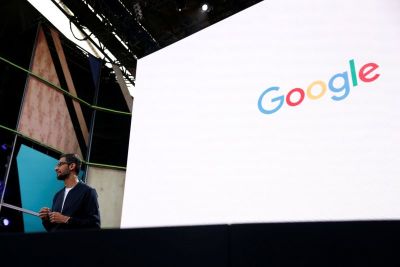Responding to big tech: Move slow and fix things

In his 2017 book, Move Fast and Break Things, film producer, scholar and writer, Jonathan Taplin offers a scathing critique of the technology industry, especially Google, Facebook, and Amazon, and how the libertarian philosophical underpinnings of these tech titans threatens culture and erodes democracy.
The title of the book is a tongue-in-cheek rendition of Facebook founder Mark Zuckerberg’s words that functioned as the motto and ethos in the early days of the social media powerhouse. The full quote, cited by Taplin at the beginning of the book is “Move fast and break things. If you aren’t breaking stuff you aren’t moving fast enough.”
To be sure there is a certain allure to these words. They are brash, edgy, and speak to the super-cool, bad boy persona startup founders live and die by. There was and is much currency in an ethos that seeks to disrupt old ways of thinking—especially in Silicon Valley.
Of course that currency is starting to wane. “Move fast and break things” was a much cooler mantra before Facebook broke democracy and turned public discourse into a hostile war zone. But those aren’t the only things the “move fast and break things” mentality broke. Taplin notes that the music, publishing, and journalism industries have been ravaged beyond recognition by the forces of social media, search, and the lie Silicon Valley’s brass told themselves for years—“information wants to be free.” The economy has been gigified, relationships virtualized, and institutions such as government, news media, and even the church have been robbed of the trust people used to have in them.
Move fast and break things indeed.
It wasn’t so in the early days of the internet. The vision its first pioneers held dear was of a decentralized network built to augment human life and creativity. But over the last thirty years, the likes of Peter Theil, Larry Page, Jeff Bezos, and Mark Zuckerberg have hijacked that vision and turned the internet into a place with only three main nodes, Google, Facebook, and Amazon all of which run on the data produced by their users. These men are heavily influenced by Ayn Rand—the libertarian patron saint of hyper-individualism and winner-take-all darwinian capitalism. This libertarian ideology erodes relationships and hollows out the middle, it knows nothing of sacrifice or seeking the good of others and the glory of God. Concepts of love, giving, and sacrifice are completely foreign to it.
And it is this libertarianism that is baked into the platforms themselves. Amazon, Google, and Facebook have repeatedly prioritized profits over people and now are seeking the power once reserved for nations. Facebook wants to issue its own currency, Libra, and Google is designing a “smart city” with more cameras and censors than even George Orwell could have imagined. Furthermore, social media use has been linked to feelings of anxiety and depression—fear of missing out (FOMO) is a new disease felt most acutely by the digital natives who grew up with Facebook and Twitter. And finally the loneliness and opioid epidemics, the proliferation of “fake news,” and the aforementioned withering trust in institutions and each other, are all, to some degree, the fruit of the “move fast and break things” model employed not just by Facebook, but by many of the the biggest companies in Silicon Valley and Seattle.
What is the Church’s Response?
Early on in the book, Taplin quotes a sermon Martin Luther King Jr. gave in 1968, a week before his assassination, in which he outlined the necessity for a moral framework to deal with the coming technological revolution. Said King,
“One of the great liabilities of life is that all too many people find themselves living amid a great period of social change, and yet they fail to develop new attitudes, the new mental responses, that the new situation demands. They end up sleeping through a revolution.”
Up until this point the church and most individual Christians have remained silent in the midst of the changes wrought by the advent of the information age. They have slept through a revolution.
In reality they have done more than that, they have been swept right along with the wave of culture that is madly in love with these platforms. Every pastor is on Twitter and every ministry on Facebook. Churches and their social media teams have even taken to Facebook to utilize their targeted advertising capabilities in order to try to attract families to their events. Instead of questioning the destructive ethos tech companies are built on, churches have co-opted it.
Those that have spoken up have largely emphasized the need for greater personal responsibility when it comes to interacting online. Andy Crouch’s The Tech Wise Family and Tony Reinke’s Competing Spectacles come to mind first. In both and other examples the inevitability of the continued ascendancy of “move fast and break things” tech is assumed. To be sure there is an element of personal responsibility that needs to be a part of any Christian’s tech ethic, but it isn’t the only thing necessary.
A call to personal responsibility divorced from a call for Big Tech companies to take on greater corporate, design, and philosophical responsibility is a false dichotomy. In reality the former could and should be used by Christians and others to leverage the latter to make the changes that need to be made.
Outside of the church this call is already being sounded. Taplin’s book bills itself as the book that started the “techlash” and indeed is highly critical of the way these companies operate. Josh Hawley, the Republican Senator from Missouri has identified Big Tech as a threat and this summer proposed legislation to reign in social media’s excesses. Rana Forhoohar has a new book coming out soon, Don’t Be Evil, that also takes a critical look at Big Tech, especially Google. Finally, Tristan Harris, a former Googler has started the Center for Humane Technology, and has argued that the way these companies currently operate “downgrades humanity.”
Christians would do well to stay appraised of what those pushing back against Silicon Valley are saying and why they are saying it. Christians also need to adopt a tech ethic that is distinctly gospel saturated. That means a wholesale rejection of “move fast and break things.” The opposite statement would be a good place to start—move slow and fix things. These words promote a tech ethic that is contemplative, even prayerful, and gives preference to quality and truth over speed and convenience. It also signifies an attitude that is restorative rather than destructive—seeking to build (especially relationships) rather than tear down. It encompasses a return to the original vision of the internet that is ordered toward augmenting human life and creativity—not replacing it.
It might also mean rejecting what Big Tech has to offer, at least until changes are made. There are probably millions of Christians throughout the country and world who would do well to quit Facebook, Twitter, and switch to Duck Duck Go or another search engine until the tech titans radically alter their exploitive business model that is predicated on maximizing “time on device.” A subscription model would instantly end the twisted incentive tech companies have to keep our eyes glued to our screens. This of course would mean an end to the free culture of the internet. But that is the culture that has caused so much damage. Perhaps a guiding principle those who recoil at such a notion might adopt is this: if it isn’t worth my money, it isn’t worth my time.
Relationally, Christians need to use social media and tech to strengthen bonds between those they interact with face to face on a regular basis. Too often users escape to Facebook to interact with their abstract “friends” without even knowing who their physical neighbors are. Proximity implies priority if not responsibility.
In 2014 Facebook changed its motto to “move fast with stable infrastructure.” But by then it was already too late. The damage had been done. Move fast and break things is the ethos Big Tech is built upon, in has infected the platforms themselves, and torn the fabric of society.
Regulation is on the horizon. Google, Facebook, Amazon, and Apple are facing antitrust investigations from a number of regulating bodies. However, it could be years before any meaningful change is made.
In the mean time, the church should take a critical look at how Big Tech operates. Leaders and laymen alike should adopt a tech ethic that doesn’t blindly accept the latest offering (or even the current offerings) from Silicon Valley. Christians need a tech ethic that is informed by a move slow and fix things mentality, prioritizes face to face relationships, and is willing to pay for that which is worth their time. Its time to wake up before the church misses the revolution.
John Thomas is a freelance writer. His work has appeared at Christianity Today, The American Conservative and The Federalist. He writes regularly at Soli Deo Gloria.




























